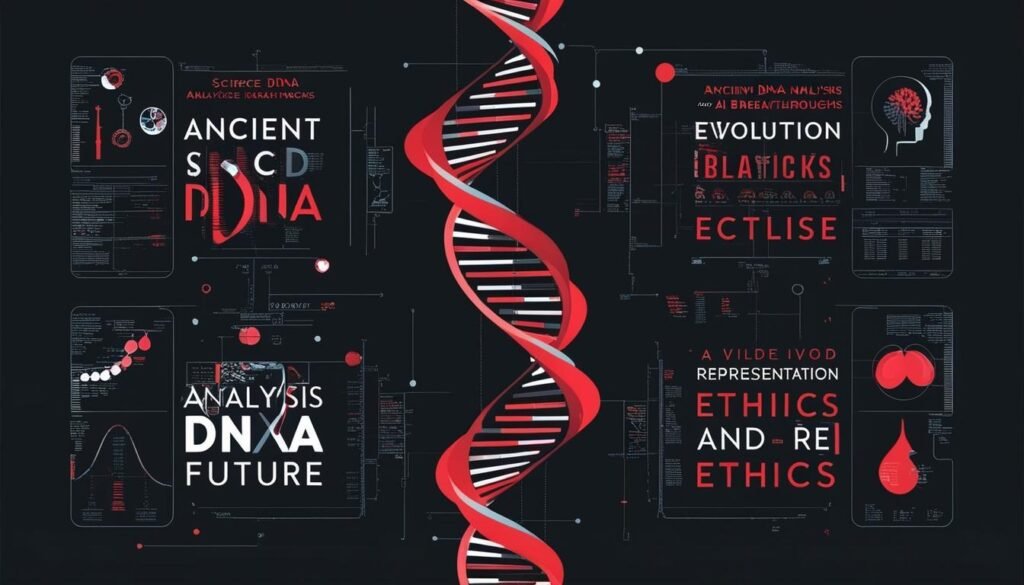Advancements in artificial intelligence are transforming genomics, offering groundbreaking research opportunities while raising ethical questions about the resurrection of ancient species.
Recent advances in artificial intelligence (AI) continue to revolutionise various fields, notably genomics, with profound implications for research and discovery. The intersection of AI and genomic sciences is paving the way for groundbreaking innovations, but it also raises critical questions about the direction and priorities of scientific research.
Genomics experts have recently unlocked significant insights into the history of biodiversity and human evolution. Research has revealed when certain plants and animals were domesticated and has even sparked interest in ancient DNA analysis, such as DNA extracted from 30,000-year-old permafrost, which has led to the successful creation of fertile samples of the narrow-leafed campion.
AI’s role in these developments cannot be overstated. The tools and technologies emerging from AI advancements enhance the scalability and pacing of genomic techniques, providing researchers with the means to conduct explorative studies that may have previously been hindered by logistical and temporal constraints. Furthermore, as OpenAI CEO Sam Altman shared in an interview with Harvard Business School officials, “Greatly increasing the rate of scientific discovery is what I’m most excited about,” highlighting the potential of AI to transform the research landscape.
Among the fascinating areas of study is the genetic exploration of Neanderthals, who lived until approximately 40,000 years ago. This research could potentially leverage genetic engineering techniques, such as CRISPR, to understand and perhaps even recreate aspects of Neanderthal genetics. By comparing Neanderthal DNA with modern human DNA, scientists aim to sequence Neanderthal genomes accurately and utilise CRISPR to introduce Neanderthal genetic variations into human DNA.
However, while scientists express excitement about the possibilities AI brings to the field, there are ethical considerations surrounding the resurrection of ancient beings. As discussed by Mohammad Hosseini, Ph.D., an assistant professor in Preventive Medicine at Northwestern University, the scientific community is faced with the imperative to establish norms and guidelines for treating any resurrected beings that possess human-like traits. This brings forth a broader discussion about the allocation of resources in the realm of AI and genomics.
A critical inquiry arises: Should the scientific community direct substantial resources – including AI technology, researchers’ time, and public funding – towards resurrecting extinct beings, or would it serve society better to focus on the preservation of critically endangered species? This debate reflects the complexities surrounding the application of AI in research and the moral implications inherent in such pursuits.
In summary, the advancements in AI within the field of genomics showcase remarkable potential for scientific breakthrough but also transmit an urgent reminder of the responsibilities accompanying these capabilities. As what was once deemed speculative becomes increasingly feasible, the global scientific community finds itself navigating both the promise of discovery and the ethical ramifications of its innovations.
Source: Noah Wire Services
- https://www.biospace.com/artificial-intelligence-in-genomics-market-size-us-16-431-16-million-by-2033 – This link corroborates the integration of AI in genomics, its impact on genome sequencing, and the potential for AI to revolutionize genomic data analysis and drug discovery.
- https://crisprmedicinenews.com/press-release-service/card/artificial-intelligence-ai-in-genomics-focused-research-2024-2029-featuring-key-vendors-fabric-g/ – This link supports the role of AI in genomics, particularly in genome sequencing, annotation, and the application of AI in CRISPR-based gene editing.
- https://www.biospace.com/artificial-intelligence-in-genomics-market-size-us-16-431-16-million-by-2033 – This link discusses the rapid growth of the AI in genomics market, the dominance of North America, and the significant advancements in AI-driven clinical genomics applications.
- https://www.biospace.com/artificial-intelligence-in-genomics-market-size-us-16-431-16-million-by-2033 – This link highlights the emergence of AI-powered genomic health personalization and the transformative impact of AI-driven phenotype-to-genotype mapping methodologies.
- https://crisprmedicinenews.com/press-release-service/card/artificial-intelligence-ai-in-genomics-focused-research-2024-2029-featuring-key-vendors-fabric-g/ – This link explains the use of AI models to enhance the precision of CRISPR technology and the implications for treating genetic disorders.
- https://www.restack.io/p/ai-in-genomics-answer-2023-trends-cat-ai – This link discusses the role of AI in accelerating genome sequencing analysis, automated analysis, and the potential for improved patient treatment matching.
- https://www.biospace.com/artificial-intelligence-in-genomics-market-size-us-16-431-16-million-by-2033 – This link mentions recent developments such as Illumina’s AI software to predict disease-causing genetic mutations and Google Cloud’s AI-powered solutions for drug discovery.
- https://crisprmedicinenews.com/press-release-service/card/artificial-intelligence-ai-in-genomics-focused-research-2024-2029-featuring-key-vendors-fabric-g/ – This link supports the idea that AI’s ability to process and interpret vast amounts of genetic data unlocks new possibilities for personalized medicine and gene editing.
- https://www.restack.io/p/ai-in-genomics-answer-2023-trends-cat-ai – This link highlights the future trends in AI and genomics, including the increased use of machine learning and the focus on ethical AI.
- https://www.biospace.com/artificial-intelligence-in-genomics-market-size-us-16-431-16-million-by-2033 – This link discusses the pharmaceutical and biotech companies’ significant strides in leveraging AI for clinical genomics applications and drug discovery.
- https://crisprmedicinenews.com/press-release-service/card/artificial-intelligence-ai-in-genomics-focused-research-2024-2029-featuring-key-vendors-fabric-g/ – This link underscores the transformative impact of AI on various fields, including healthcare and agriculture, through its integration with genomics.


